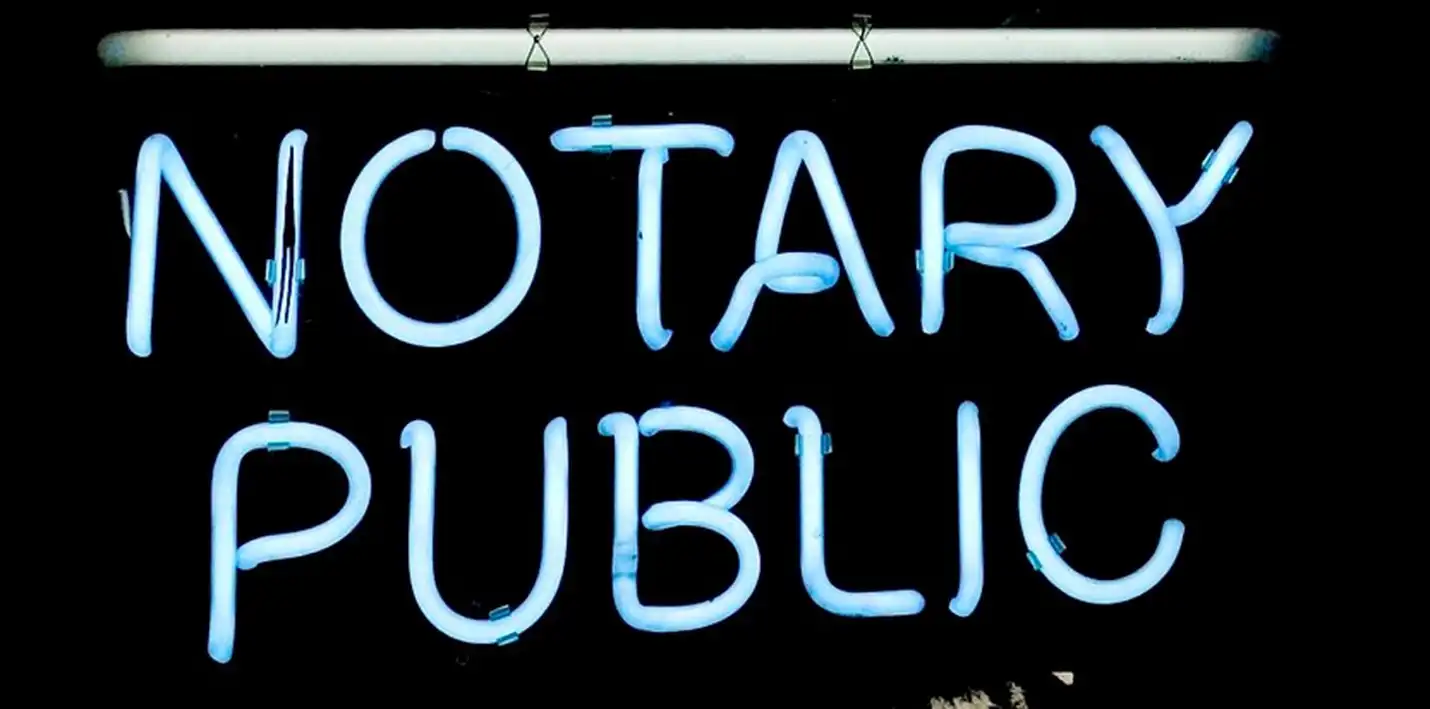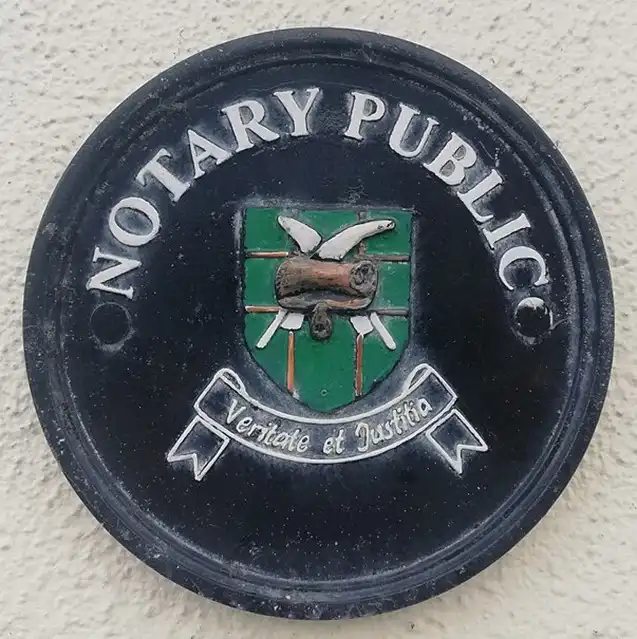
The point of having a deed notarized is to ensure its legitimacy. Or so most people would think.
A notary public is appointed by the state to witness the signing of legally significant papers, including deeds used to transfer home properties. Honesty and integrity are key traits for anyone performing this role.
But recently, a notary was charged with running a scheme to falsify deed transfers. This is not a case of a notary seal being used by someone else, or a notary being duped into playing a role in theft. It’s an actual case of a notary public actively using the role as a cover for deed theft.
Philly’s Assistant District Attorney, Kimberly Esack, calls it an “unusual” case. But it has spread a fog of confusion over a whole lot of people in Philadelphia.
A Slew of Charges
Gwendolyn Schell, of the Germantown neighborhood in West Philadelphia, allegedly committed a slew of crimes. Eight different crimes appear on the charging documents. These include conspiracy, theft and identity theft, forging signatures, and tampering with official records, as the Philadelphia Inquirer reported. Prosecutors brought 250 counts against Schell by the time they added up the counts for each of eight crimes charged, per the Philadelphia District Attorney.
So far, investigators are alleging connections from this notary to at least 21 homes with stolen deeds across the city. Schell allegedly manipulated deed after deed while working as a notary public. The charges are especially heavy due to the conspiracy element. Schell is accused of collusion with others to select homes that could be easily taken.
Names of the co-conspirators in this case have not yet been issued to the media. Prosecutors are investigating other deed transfers for possible fraud by Schell and the others involved in the scheme. There are several search warrants and arrest warrants in play.
Disrespect for the Dead

According to Philadelphia’s District Attorney, Larry Krasner, Schell forged signatures and illegally transferred the real estate instruments. The DA’s office said Schell backdated some official documents, making it look like deeds to homes were voluntarily transferred by people who are now dead.
Other deed holders were targeted while alive, according to prosecutors.
Some of the falsified deeds fudged the home prices to generate lower tax bills. And the notary stamps indicate that Schell witnessed the homeowners (including dead ones) sign over their deeds, say prosecutors.
Anyone with a home could become a target for deed manipulation. So of course the case is rattling Philly residents. The office of the Philadelphia DA has set up a deed fraud hotline for reporting suspicious activity.
The Big Picture
The District Attorney says keeping people’s deeds safe is a priority in Philadelphia. Those who are targeted are often seniors or people of modest means. If you don’t have resources and someone takes off with your deed, it can devastate you and anyone who lives in the home or depends on its value.
“The big picture is this,” Krasner said: “There are some organizations that may try to help you, but it becomes a very, very difficult situation for your family.”
The DA says they’ll aggressively prosecute such cases. Philadelphia has extra space in its prison system at this time, DA Krasner said, and the city is ready to use it.
All this was reported and amplified by the local news outlet NBC10. Reporters attempted to speak with the accused notary but their efforts were unsuccessful.
Exposing the Scheme
In 2018, a city records official tipped off the office of the Inspector General to a series of strange deed transfers. From there, news of the issue went to the DA’s office. Soon the city was tracking down an elaborate series of corrupt deed transfers that took place over eight years.
After the deeds were taken, some of the homes were transferred yet again — to innocent buyers, say the prosecutors.
Family and heirs have managed to recover a few of these homes. But some are tangled up in the civil court system, as families struggle to recover their losses after the homes were sold to other people.
It’s a sad situation when an ill-gotten deed winds up in innocent hands. The buyers, too, must go to court. They find themselves fighting to keep property, often after repairing and renovating what they thought were their new homes.
Officials have described witnessing these sad confrontations over the years. In 2019, the city introduced its current Fraud Guard system, which sends alerts to people whenever newly recorded real estate documents are filed against Philadelphians’ titles. The free alert messages can be initiated online, through the city government website.
The city records department now shows who the involved notaries were, too.
Does your county have a deed claim alert system? If so, it’s likely free. If you sign up for immediate notifications, you can move fast after a fraudulent transfer. That might prevent the perpetrator from selling your home.
More Tips for Protecting Your Deed
Fraudsters can target any deed holder. Granted, fraud might never happen to you or anyone you know. But if it does, it’s a complicated and costly problem. So, here are some more good measures you can consider taking:
- Say “yes” to title insurance when buying a home. Your lender insists on having it (and you pay for that) so get your own coverage as well, with your name as beneficiary. You only need to pay for this policy once. An enhanced policy will cover most problems, including occurrences of deed fraud. Check with your insurer.
- Put your home in your will, so that the title is handled by your local court in probate. If you’re in Philadelphia, contact the Register of Wills for the fee deferral that helps you pay for probate of deceased relatives’ estates. The court will generate a new deed in the heir’s name. (Remember, the way your deed is vested is as important as a will or trust.)
- Use caution with deed transfers from seniors. Never use pressure to get a senior to sign over a home deed or a power of attorney document. Avoid even the appearance of undue influence! (Seniors and relatives: Speak with a local lawyer for situation-specific advice.)
Finally, is someone in your circle leaving a property unoccupied? The Philly DA says deed theft is most likely when an owner dies or otherwise leaves the home.
Supporting References
Lili Zheng for NBC Universal, Inc. via NBCPhiladelphia.com: Philadelphia – Philly Notary Allegedly Stole Homes Throughout the City in Years-Long Scheme (Apr. 30, 2025; updated May 1, 2025).
Michael Tanenbaum, for PhillyVoice Investigations (part of WWB Holdings, LLC), via PhillyVoice.com: Philly Notary Public Charged With Forging Documents to Steal Deeds of More Than 20 City Homes (Apr. 30, 2025).
Nick Vadala for The Philadelphia Inquirer, LLC, via Inquirer.com: Philly Notary Charged in House-Theft Scheme That Resulted in 21 Stolen Homes (Apr. 30, 2025).
Deeds.com: “Particularly Insidious” – Update on House Theft in Philadelphia (Jul. 16, 2021).
And as linked.
More on this topic: Shocking cases of deed theft
Photo credits: Cinnamonster via Flickr, licensed under CC BY-SA 2.0 Generic; and Sheila 1988, via Wikimedia Commons, licensed under CC BY-SA 4.0 International.
